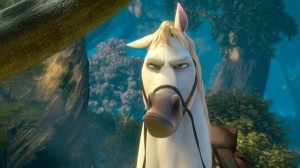Sometimes you read a book review that is critical of a particular book you’d looked forward to, and the criticism points toward things that don’t really matter to you or that can be actual positives (This book is so sloooow).
And then there are the times you read a book review that nails down a particular trope that you simply detest. While any detailed, thoughtful book review can be helpful, this particular kind of review is probably the *most* helpful.
So, this morning, Sherwood Smith posted comments about Hardinge’s THE LIE TREE on Goodreads, in which she said, among other things:
Faith is a young teen fiercely interested in the natural sciences, an interest she shares with her famous father, who is also an Anglican minister. When I saw that, I hailed it with inner relief, thinking that finally here would be a book that wrestles with the changing of a paradigm, without going down the usual over-simplification trail by making religious faith and scientific endeavor mutually exclusive. With, of course, the religious characters being narrow-minded, clinging to ignorance, and petty, if not downright eeevil.
Nope, it turned out that Hardinge was trotting down that well-worn path.
… and I metaphorically threw the book across the room and dropped it from the To Read — Urgent pile to the Maybe Someday, Maybe Never pile.

Well, even Patricia McKillip wrote one book I detested. I presume I can still happily anticipate the two other Hardinge books I have on my TBR pile.
So!
If you know of any SFF (or other) novels where Christian characters, particularly in a historical setting, are shown as sincere but not “narrow- minded, clinging to ignorance, and petty, if not downright eeevil,” please drop them in the comments.
I’ll start:
1. Just one of the five Spanish friars in SILVER ON THE ROAD is shown as a thoroughly negative character. Although they are minor characters, two are specifically developed in positive ways. If Gilman had followed the tired narrow-minded-bigot trope for all the friars, I would have dropped the novel to at most four out of five, maybe seven and a half out of ten. That’s how much I loathe this particular extraordinary common trope, which imo is not only lazy but smug and self-righteous.
Here’s another:
2. In THE BEACON AT ALEXANDRIA, Gillian Bradshaw uses narrow-minded, petty Christian monks as a plot driver — but she also introduces Saint Athanasius of Alexandria, who is a fantastic character. Obviously he is a very sincere believer, but he is definitely anything but narrow-minded or petty. Bradshaw does a wonderful, wonderful job handling religious characters and religious conflict in this book.
Other examples, please! Major gold star if you can name one where religious faith and scientific endeavor are NOT shown as mutually exclusive.

 newest »
newest »
 newest »
newest »
 I've been trying to come up with recent examples, but it's hard. The fashion for so long has been for Evial Priests in Red in their various forms in various sub-genres that when I see a character delineated as specifically Christian I brace myself for the inevitable child molestation, rape, or one of the other seven deadlies.
I've been trying to come up with recent examples, but it's hard. The fashion for so long has been for Evial Priests in Red in their various forms in various sub-genres that when I see a character delineated as specifically Christian I brace myself for the inevitable child molestation, rape, or one of the other seven deadlies.
 Thanks for your comments, Siavahda! I worked 'em into my latest post because I had enough suggestions to fill out a decent list.
Thanks for your comments, Siavahda! I worked 'em into my latest post because I had enough suggestions to fill out a decent list.





The other that springs to mind it Kit Whitfield's In Great Waters, which has several bishops. I think I remember that one is not very nice, but the main one definitely is a lovely man and helps save the lives of the main characters - although he does temporarily turn against them at one point, it's for very understandable reasons fueled by his faith.